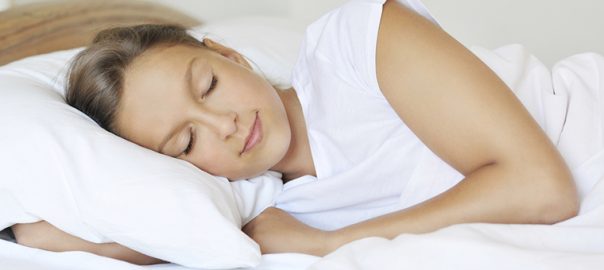
Get A Better Sleep With Low Carb Foods
Forget Counting Sheep – Better Sleep With Healthy Low Carb Food
We all know the difference that a goods nights’ sleep can make in how we feel on any given day. Although it’d sure be nice if there was a single secret trick to getting quality sleep, the reality is that our sleep quality is affected by many different factors, and a change to any one of them can have a significant impact on how much sleep we get and how rested we feel.
Some of the many things that can impact our sleep quality are stress in our lives, our level of physical fitness, the surrounding environment, certain medications we take, and alcohol consumption, just to name a few. In addition, our diet and the foods we eat throughout the day can have a big impact on the amount of sleep we get and how effective it is at making us feel rested. Some foods are beneficial to sleep quality, while others have more detrimental effects on our sleep.
For low carb dieters, it’s definitely important to know how the foods we eat can impact our sleep and, in turn, our overall sense of well-being. Let’s start by take a closer look at exactly how food and sleep are connected to each other.
How Food and Sleep Are Connected
Your body is constantly working to maintain an equilibrium, or balance, that keeps everything functioning properly. In order to do this, we need things like nutritious diet, proper hydration, regular exercise, and stress management, among others. If one of these factors falls out of balance, then the body has to compensate in some way, and sleep is one of the first things to suffer as a result. If our diet doesn’t consist of all the essential elements we need, like protein, vitamins, and other nutrients, then our body doesn’t simply function as efficiently, and sleep quality declines.
In addition, certain foods can have different types of effects on the body when they’re consumed. Some prime examples of this are beverages that contain caffeine, which is a strong stimulant, and spicy foods that contain capsaicin, which has been proven to cause the body to produce endorphins and dopamine at an elevated rate.
Some foods that are more difficult to digest, or perhaps that our bodies are sensitive to, can also produce effects that cause our ability to sleep well to decline. For example, some types of foods are more prone to produce gas as they are digested, resulting in bloating and unpleasant effects in the bowels. Other types of foods, particular those that are extremely spicy, are known to be a cause of heartburn and indigestion in some people.
In many cases, these effects can be managed and mitigated by being attentive to how our bodies react to them and planning accordingly. Some people take steps in their routine to minimize the potential detriments to their sleep such as only having coffee in the mornings or avoiding spicy foods late in the evenings.
There are many types of foods, or ingredients in foods, that are well known to be connected to sleep disruptions. Here’s a list of some of the most common foods that you may want to avoid or simply regulate as part of your diet in your quest for a better nights’ sleep:
Foods That Can Negatively Affect Your Sleep
Coffee, Energy Drinks, and Caffeinated Tea – Any drink that is heavy on caffeine or is designed specifically as a pick-me-up is definitely something that you’ll want to limit to the early part of the day. Caffeine can affect your body for several hours, so sometimes that afternoon coffee can linger well into the evening. Switch to decaf if you really feel the need for a hot cup of coffee or tea and it’s later in the day, and be sure to use a sugar-free coffee creamer.
Hot Peppers & Spicy Seasonings – The body’s natural response to the burning sensation of spicy foods is to release endorphins and dopamine, which can stay present in the body for quite some time. This is why many people report that hot, spicy food makes them feel good when they eat it. Also, as we mentioned earlier, if you suffer from heartburn or indigestion with spicy foods, it definitely won’t help you sleep if you eat them before bed.
Alcohol – Even though alcohol is a depressant by definition, and has sedative effects, sleep is often disrupted when they wear off. This is why many people experience early waking or frequent waking after they’ve had a few drinks. Control your alcohol consumption and plan on stopping early in the evening if you want to achieve better sleep.
Sugars – Fortunately for low carb dieters, cutting sugar out of the diet has probably already been done quite effectively. However, if you find yourself occasionally indulging in sweet treats or like your tea or coffee with sugar, this could be the cause of your tossing and turning. If you need to satisfy these cravings, opt for one of the many sugar-free varieties of candy to avoid this. We’ve got a wide range of sugar-free sweet treats and sweeteners to choose from!
Now that you know the basics of what to avoid in your diet to help aid in getting better sleep, what are the foods you should reach for to boost your sleep quality even more? Here’s a few foods that are ideal for the low carb diet, and have shown to have positive effects on sleep patterns.
Foods That Help in Getting Better Quality Sleep
Tart Cherries – We know that it might sound strange, but studies have shown that tart cherries and juice made from them can have a positive effect on sleep quality thanks to the presence of anti-inflammatories and naturally-occurring melatonin. Of course, low carb dieters should be sure to choose sugar-free varieties of tart cherry juice.
Salmon and Other Fatty Fish – While being rich in Omega-3 fatty acids have already proven salmon to be a very healthy source of protein, recent studies have shown an increased emphasis on the importance of Omega-3’s on sleep quality. This is great news for low carb dieters who are already sold on the health benefits and great taste of salmon!
Pistachios – These tasty little nuts aren’t just a great snack food, but they also contain melatonin and magnesium. Magnesium is an essential nutrient and helps contribute to healthy muscles. In addition, magnesium has been shown to have relaxing effects on our body’s muscles, acting as a natural reliever of muscle tension.
Water – This should go without saying but staying hydrated is one of the absolute best ways to help maintain a healthy body. This isn’t to say that you need to guzzle a pitcher before bed and then have to get up multiple times to pee. Simply staying regularly hydrated throughout the day will help your body function properly and contribute to a good quality sleep at night.
Have a Great Night!
We certainly hope that you’ve found this information helpful in your efforts to get a better nights’ sleep. Along with a healthy low carb diet, regular exercise plan, and sensible approach to stress management, getting better sleep can definitely help improve your overall sense of well-being. Pleasant dreams!






